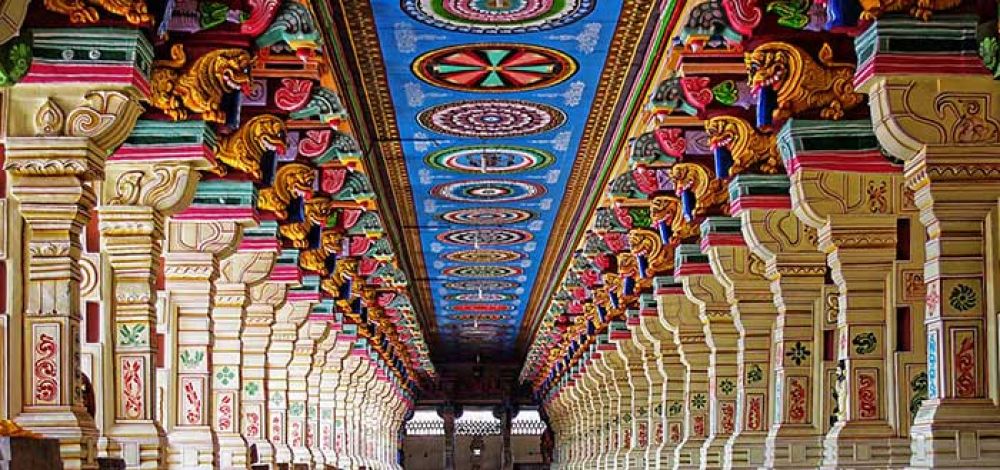

Rameswaram, located off the southeastern coast of Tamil Nadu on Pamban Island, is a historically and culturally significant pilgrimage town within India. This island holds a special place in Hindu mythology as it is considered to be the place where Lord Rama created a bridge across the sea to Lanka to rescue his wife Sita from the demon king, Ravana, as depicted in the epic, Ramayana.
The history of tourism in Rameswaram can be largely attributed to its religious significance and the presence of the ancient and majestic Ramanathaswamy Temple. This temple, dedicated to the god Shiva, is one of the twelve Jyotirlinga temples and has been a pilgrimage site for centuries. Pilgrims have traditionally traversed great distances, often on foot, to pay homage at the sacred shrines in Rameswaram. The temple's corridor, with its elongated rows of intricately carved pillars, is one of the longest in the world and has been a draw for visitors both for worship and to marvel at the artistry since ancient times.
During the British colonial period, infrastructure developments such as the construction of the Pamban Railway Bridge in 1914, spanning the sea to connect the island to the mainland, facilitated easier access for pilgrims and tourists alike. This boosted the region's popularity as a tourist destination, allowing for increased visitor numbers and enhancing the prestige of the Ramanathaswamy Temple as a site of religious importance.
With the advent of modern transportation and the development of amenities, the visitation to Rameswaram has expanded beyond just religious tourism. The town has seen improvements in lodging, food services, and travel connectivity. The place now caters not only to the spiritual sojourner but also to a wider audience including history enthusiasts, adventurers, and nature lovers. The region's tourism portfolio has diversified to include attractions such as the azure beaches of Dhanushkodi, once a bustling town washed away by a cyclone in 1964, the serene Pamban Island with its diverse ecosystem, and the Abdul Kalam Memorial, dedicated to the beloved former President of India.
As of recent years, there has been a focus on sustainable and eco-friendly tourism in Rameswaram, with initiatives aimed at preserving the natural beauty and cultural heritage of the island. Agri-tourism and community-based tourism have become increasingly popular, creating immersive experiences for tourists while contributing to the local economy and empowering communities. Adventure tourism is also on the rise, with activities such as kite-surfing, snorkeling, and bird-watching, which capitalize on the island's unique geography and natural resources.
The latest statistics and studies indicate that Rameswaram's tourism industry continues to thrive, with the local administration seeking to balance visitor numbers with the conservation of the town's cultural and natural assets. The enchanting mix of history, spirituality, and natural splendor ensures that Rameswaram maintains its age-old allure, captivating the hearts of travelers from around the world.